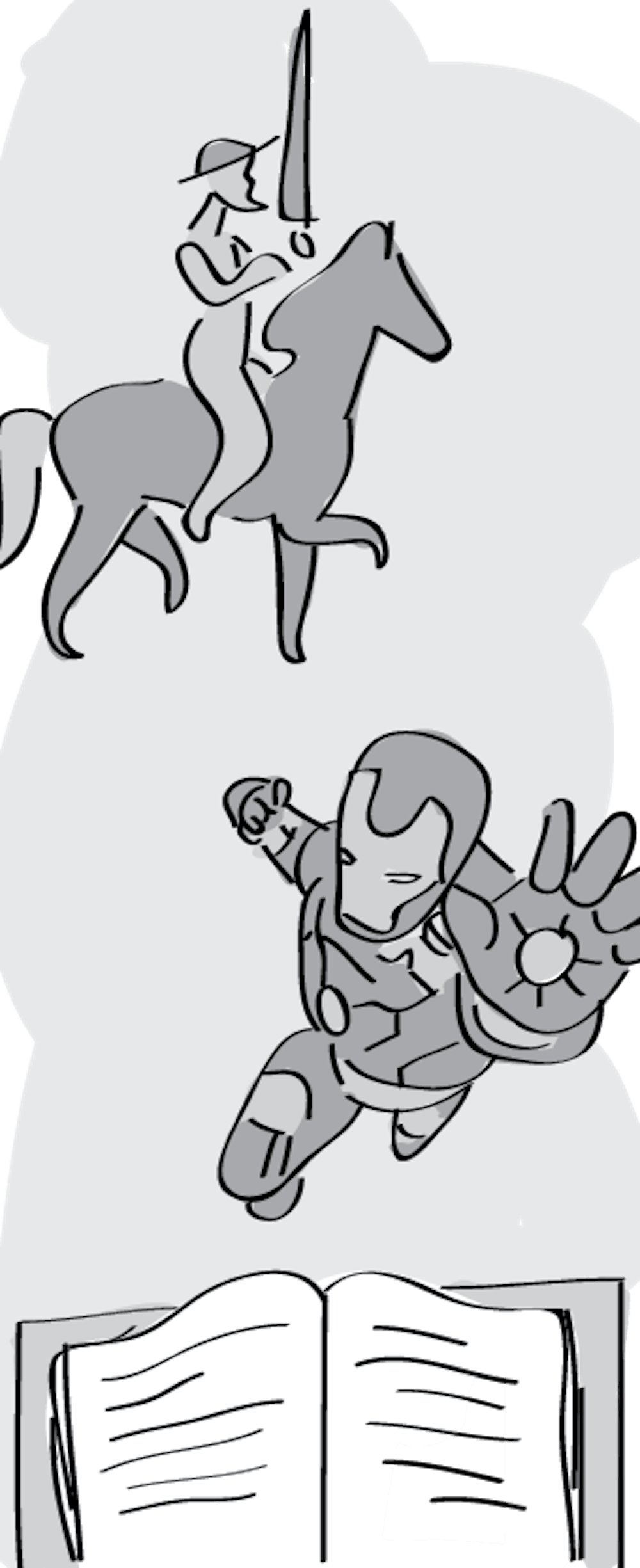Blinded by our own lights

Protagonists are always right.
In many stories we read, from fairy tales to advanced classical literature, we root for the protagonist. We feel the protagonist. It doesn’t matter if the protagonist is a murderer (“Crime and Punishment”), a revenge-driven demon (“Count of Monte Cristo”) or a deluded and crazy knight (“Don Quixote”). It doesn’t matter if Tony Stark is actually a billionaire selfish bastard. We still love Iron Man.
So who writes your story?
For many people, they themselves do. For many, the world is dictated by the word “me.” Bob ditched me for dinner. Why couldn’t he be nicer? This line is so long. Why is the cashier so slow? In everything we do, we are secretly rooting for ourselves, supporting ourselves. It wouldn’t matter if we took a bit of revenge on the guy that ditched us, or if we shot daggers with our eyes to the cashier as she slowly packs our groceries. What we do is justified, because we were victims here.
Little might we know that Bob had an ongoing conflict with his girlfriend during the dinner plan, and he was trying to figure it out. Little might we know that the cashier worked three jobs to keep her family going, 15 hours a day, and she was really feeling her body crack under the stress.
We are the protagonists of our own stories. What we know, what we follow are our own feelings and frustrations and sadnesses, judged by our own standards and processed by our own minds. Whatever happens, we are justified, backed up, understandable and pitiable. The happiness we have, we deserve; the suffering we experience, we don’t.
We all know we are guilty of this in some way or another. When we win a competition, we don’t immediately think of our supporting parents/teachers or think about how blessed we are to be given so many opportunities. We think about how hard we worked or how smart we are. When we encounter a hard exam, we don’t immediately think about the fact that we should not have watched that movie two nights ago. We think about the fact that our professors are crazy and too demanding. We are writers who have mastered the art of first person.
But we fail to realize that everyone else is a protagonist too. We forget that we are not the only writers. Shift the perspective a bit, and we realize that our stories were only small stars in the night sky above us. We’ve been so blinded by our own lights that we couldn’t see the other stars.
So let’s start our stories anew. Flip the page, begin a new chapter. We focus on ourselves so much already that it doesn’t hurt to look toward others for a bit every day. When Charlie gives you the coffee in a rudely hurried manner? Maybe he something bad happened to him. Say thank you, smile at him. When Megan has not started on her portion of the group project? Maybe she has had some problems that needed immediate attention. Ask her what’s wrong. Then, maybe then, we’ll understand how to be a true hero, a true protagonist — not only in our own stories, but in others’ as well.
Minsoo Kim, Lovett College ‘19
More from The Rice Thresher
Rice has a serious accessibility problem
Just over a year ago, disability scholar Bowen Cho ranked Rice 35th in a study of disability inclusion and access across 106 universities. Cho noted that the 10-minute transfer period between classes used by Rice and many other universities can pose an issue to students with mobility issues.
Outcry over chemicals is misplaced, overshadows greater nutritional concerns
Recently, Rice’s dining services have faced criticism over artificial dyes, additives and potential “banned” ingredients lurking in the servery.
Turning heads, changing minds in difficult times
It goes without saying that we live in challenging times.


Please note All comments are eligible for publication by The Rice Thresher.